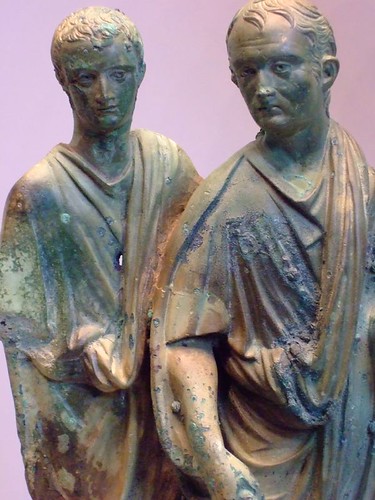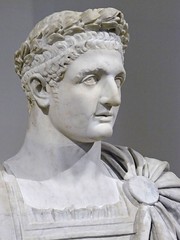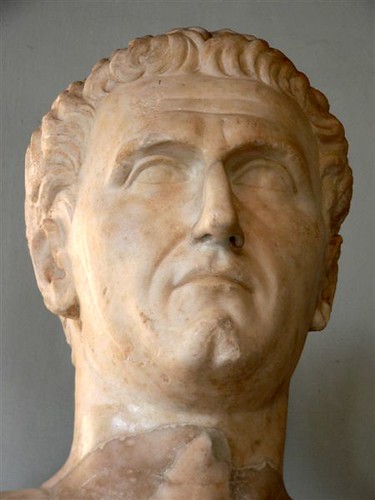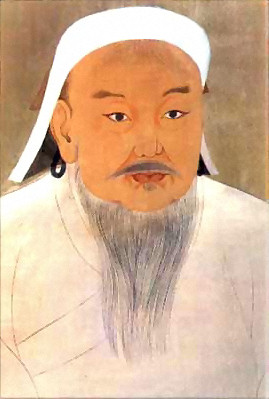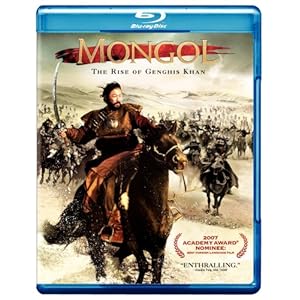
The glamor surrounding Hannibal and his amazing trek through the Alps with a cadre of elephants during the Second Punic War has captivated history buffs for so long that the First Punic War has been virtually overlooked by many historical novelists. Likewise, although many authors have written thousands of pages about Rome's fierce legions, Rome's first tentative efforts to build a navy and develop seamanship that would eventually rival Carthaginian mariners who had ruled the Mediterranean for centuries have been largely ignored as well. But Irish author John Stack has redressed both of these oversights in his "Masters of the Sea" series of novels.
I was unaware of Stack's efforts until the third book in his series, "Master of Rome", popped up in the available titles on Audible.com. As I am always on the lookout for stories set in the ancient world, I immediately selected it as one of my choices and was pleased to discover that its story focussed on the naval battles of the last years of the First Punic War.
The story's protagonist, a Greek born Roman prefect named Atticus Perennis, has honed his seamanship fighting pirates (which I learned later is covered by the first book in the series, Ship of Rome
Perennis commands one of the few ships that survive the storm and is assaulted by charges of incompetence when he returns to Rome to report the loss to the senate. We learn that in earlier novels Perennis has apparently made a powerful enemy in the form of Gnaeus Cornelius Scipio Asina who earned his cognomen "Asina" meaning "donkey" when, as the first Roman fleet commander, he led an ill-conceived rush to take possession of the Lipari Islands and was subsequently captured by the Carthaginians. Since I had read only about the glory of the Scipioni in regards to the Second Punic War and the ultimate defeat of Hannibal, I was surprised to learn that the family had someone in the family tree much less militarily successful. A little research revealed that he was actually a brother to Lucius Cornelius Scipio who begat the much more glorious line of descendants.
 |
Roman galley depicted in a fresco recovered from Pompeii, 1st century BCE -
1st century CE. Photographed by Mary Harrsch at the Archaeologico Nazionale
di Napoli in Naples, Italy.
|
Fortunately, Perennis has a powerful Senator in his corner, and he survives the spurious charges and is placed in command of a new fleet no longer equipped with the corvus. But this change brings the Romans back to their original problem. How do they overcome the supremely skilled Carthaginian seamen? To make matters worse, Scipio Asina is elected consul and ignores any advice Perennis offers to help the Romans achieve victory.
Perennis trains his men furiously but even the most brutal training schedule cannot equal the skills acquired and handed down for centuries by generations of Carthaginian sailors. However, Perennis manages to maintain a blockade of the city of Panormus and Scipio's legions eventually breach the city's defenses. But the Carthaginian defense is spearheaded by Greek mercenaries so Scipio refuses to acknowledge Perennis' crucial contributions to the ultimate Roman victory.
In the meantime, Hamilcar Barca has hired another of Perennis' wily countryman from Rhodes to slip through the Roman blockade and keep Barca informed of Roman dispositions of ships and legions.
This Rhodian, a real historical figure named Hannibal the Rhodian, was almost equal to Perennis in command seamanship and Perennis has to employ every ounce of his mariner's skill as well as a cuning ruse to finally overwhelm the Rhodian's sleek quadreme when the Rhodian attempts once again to run the Roman blockade. (I noticed in my research that the Rhodian's ship is thought to have been used subsequently as the model for faster Roman ships as the war progressed.)
The Rhodian's capture yields valuable intelligence about the location of the main Carthaginian fleet at Drepana and Scipio Asini is once again, all too quick to jump on the opportunity to grab a fistful of glory and orders a night voyage to surprise the Carthaginians.
 Image via Wikipedia
Image via WikipediaFor the sake of historical accuracy, I must point out that in history, Publius Claudius Pulcher, not Scipio Asini, was consul by then, and it is Pulcher who supposedly threw the uncooperative sacred chickens overboard when they refused to eat during the auguries before the battle of Drepana, declaring "Bibant, quoniam esse nolunt " - "Let them drink, since they don't wish to eat!". Stack includes this bit of theater in his story although some scholars point out that it was only referenced indirectly by Cicero and not documented by Polybius, recognized as the definitive ancient source on the Punic Wars, so whether it really happened is questionable.
Some reviewers have criticized Stack's consolidation of some of the Roman commanders but I think he meant to streamline the story to improve pacing and allow the reader to focus on the actions of the main protagonist and antagonists. Stack also simplifies the Carthaginian command structure by having Hamilcar Barca, Hannibal's father, in primary command of all Carthaginian forces, including the fleet. In reality, Hamilcar Barca commanded the land forces and did not possess the level of naval acumen attributed to him by Stack in this story. However, since the story was so engaging I was obviously motivated to research the time period and battles covered further so I gained an understanding of the real details eventually anyway.
Hoping to surprise the Carthaginians, the Roman consul plans to sail under cover of darkness and trap the Carthaginians inside the harbor. But, Perennis feels his crews are not experienced enough to maintain battle formation at night. However, Perennis is once again ignored as orders are given to set sail for Drepana. As Perennis predicted, the ships are soon strung out in a long disorderly line and are spotted by the Carthaginians as they approach the harbor. The Carthaginians not only escape the trap but turn the tables on the Romans and destroy almost the entire fleet.
But the ever tenacious Romans once again rebuild their fleet and exact their revenge at the Battle of the Aegates Islands, the rousing climax of the novel.
Although a relatively new author, Stack demonstrates a command of the history of the era and the cultures involved coupled with the crucial ability to people his stories with vibrant personalities as well. I have little doubt that Stack will eventually be ranked among such bestselling historical fiction writers as Conn Iggulden and Harry Sidebottom.
Furthermore, I found Stack's ability to conjure up the terrifying ferocity of an ancient naval engagement with its splintering oars, screaming crewmen, shuddering timbers and gore-slickened decks absolutely riveting. I definitely plan to go back and read the other books in this series.
An excellent summary of the battles immediately preceding and including the events in this novel can also be read here.




















